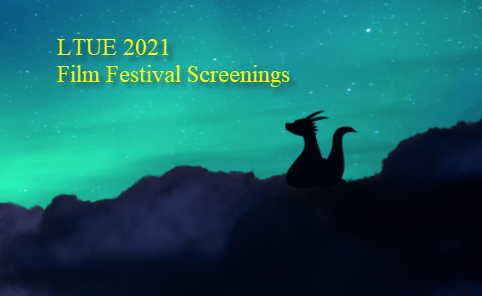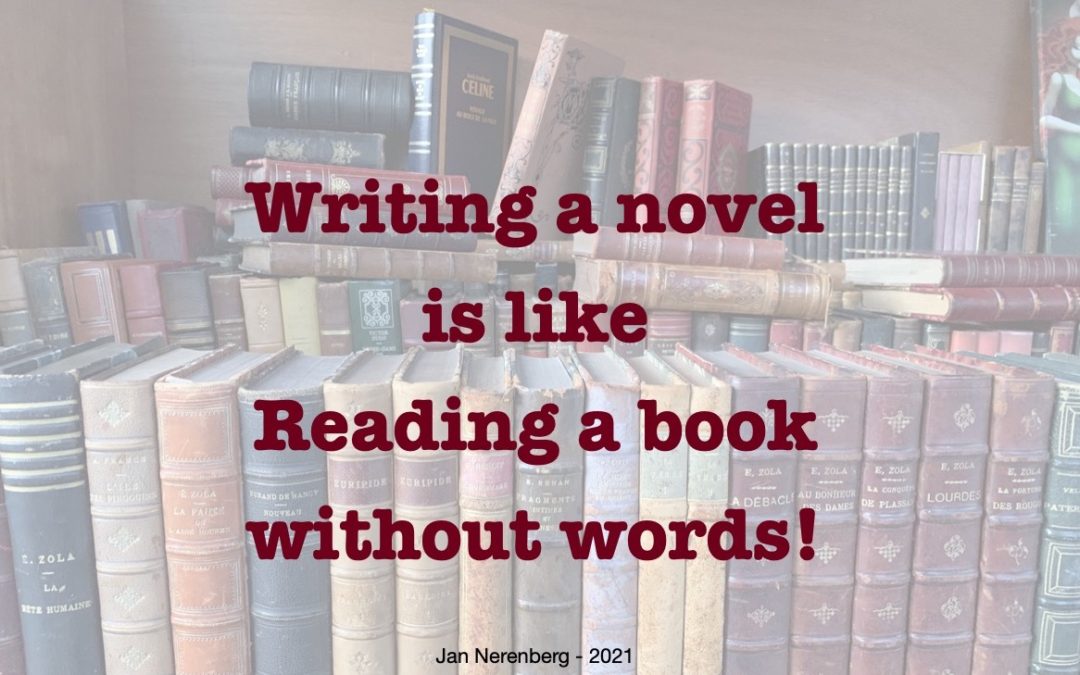Film, Theater, and Music: Being Schooled by The Fish
Nick Mills
One of the greatest joys in life comes from seeing your creative ideas take shape and come to life and then having your audience respond positively to your work. Whether it is words on a page, acting/singing on a stage, or seeing your finished work in print or on the silver screen, the core purpose is to convey “story”.
Story is the heart of it all. To be the best storyteller you can be, you need to understand your craft and you need to learn to think like the fish.
I’m in the middle of taking a master class from Hans Zimmer, one of the great current film composers. He teaches that the soundtrack, the music, and the sound effects all independently tell the same story that is being told by visuals and dialog. The composer, producer, and director all work together and yet, in a sense, independently to tell the same story. All the visuals, the script, the blocking, the staging, the choreography and the soundtrack each should tell the same story but in different layers. All layers need to work together and jive so the overall combination provides the most powerful and complete story with the strongest emotional impact.
Another aspect (for any of the formats listed above) is that there are two (sometimes competing) camps of thought about whether a story should be plot based, or character based. Especially in the movie world, some experts argue that plot based is the best approach while others prefer to focus on character development, sometimes at the expense of the plot.
The fact is that both are essential and you need to have the right balance. If you don’t have a great plot, the story doesn’t go anywhere. The characters are just having a “nice” day at the park, whether it’s the Griswold’s going to Walley World or the experts certifying the safety of the Jurassic Park.
However, if you don’t have great character development, if readers or viewers can’t relate to your characters, or even better, if they can’t love your characters, they quickly lose interest. First, they tune out mentally, and it isn’t long before they physically tune out.
Many songs are (or music in general is) also used to tell a story or induce the desired emotion or set the mood for the scene. There are some interesting concepts involved in telling your story with a song. These concepts, or rather components or elements are even more important when it comes to writing a number one hit song. Every hit song includes a set of common components (we won’t talk about all of them all right now, this is just for example). These common elements in a song are metaphorically a little bit like the features in all cars.
Every car has an engine, steering wheel, tires, brakes, seat, etc. The common (or similar) elements in the hit songs help make them marketable and useful for specific uses and various commercial applications.
If you look “under the hood” of most hit songs you learn that even the beats per minute of the song are set to match the heart rate of the listener during the specific use, while the song is being played. For example, if a song will be used for dancing or aerobics (where the heart rates vary between one-hundred-and-twenty to one-hundred-and-thirty-five beats per minute), then the song speed (beats per minute) is set to that same rate. So much more goes into what makes a hit song, but this will do for the example. You can learn more about the details in the book “Murphy’s Laws of Song Writing” by Ralph Murphy.
Each time music used to tell the story (or help tell the story) in a movie or on stage, it is very carefully created and composed to reinforce what is happening in the scene. This applies whether it be a three-second sound-effect such as a bell ringing, or a longer sound clip that puts the audience in the mindset for some upcoming, unknown or unseen danger such as a monster hidden in the closet, or aliens in orbit ready to attack. A great way to test this for yourself is to play your favorite scary movie on your TV with the sound turned down. Just watch the scene without the sound. A large part of the tension in the scene is gone. Some scenes that scare the “yell” out of me with the sound on, almost make me laugh when I turn the sound down. Now take it one step further. Play the same scene again with a laugh track, or any audio clip from your favorite comedy series or movie. You can see (and hear) with this test how important the music is to any movie, musical or even dramatic stage play.
Scoring music for theater or film also includes the musical equivalent of the question and the answer. A great writer builds the world for their story and sets up all the trials, roadblocks, foils (call it whatever you want), in essence, they set up the problems or “questions” early in the story, and then answer each question, or resolve the problems later in the story. A great composer does the same thing musically. Zimmer is a master at this. Of course with the music used in these scenarios the “question and answer” cycle or the delay between the musical question and the musical answer is much shorter, and there are many musical questions and answers all perfectly connected together as if sequenced by a master DJ to help make the soundtrack.
The music is just as important in video games. The wrong music produces the wrong emotions and the wrong mood and leaves the scenes somewhat meaningless or at least it leaves the scene with less emotional impact.
The principles of great songwriting are woven in, along with the ideas about musical storytelling that Zimmer talked about. All elements, mentioned in this blog all work together to make a great movie. Many of the principles also apply to great stage plays or musicals. Although in stage and musical theater, more is left to the imagination and word painting. Choreography and music are more tightly woven to tell the story. When one of the multimedia elements (more readily available in movie making) can’t be used on stage, then the others are used more carefully and wisely to compensate. Of course I’m barely scratching the surface, but hopefully, it cracks the door open wide enough that you can see “into the studio”.
Why do I mention these things? Whether you are a novice and dream of being involved in film, stage or music creation, or if you have intermediate skills and more experience and want to learn more, or if you want to make connections with professionals and start making money in the community, we invite you to join us at LTUE where many writing, film, theater and musical professionals will share their skills and experience in our panels, presentations, and workshops. We can help you take your creativity to the next level.
See our schedule, or keep an eye on the LTUE Blog articles for additional information.

James A. Owen
Article by James Artimus Owen “What did you do as a child that made the hours pass like minutes? Herein lies the key to your earthly pursuits.” ¬– C.G. Jung The Studio where I work and live – a century-old, renovated church – is very large, and mostly full: full of...

LTUE Film Festival Screenings
Welcome to the LTUE 2021 International Film Festival Screenings Part 1 (Short Films). The film festival ran live on February 11th, 2021 from 8 PM until 11 PM. The following link will take you to the RAW recorded stream. https://www.youtube.com/watch?v=7exsUnuAICo You...

TMA Special Guest Tom Durham
TOM DURHAM On Friday February 12th, 2021, at 11 AM, Emmy Award Winning creator, and Special Guest for Theater & Media-Arts Tom Durham will be giving a 2-hour presentation at LTUE on making money with your creative skills. Course Description Can you actually...

Padded Rooms & Straight Jackets by Monique Luetkemeyer
By Monique Luetkemeyer - Part 1 of 1 Email: moniquel319@gmail.com Thoughts for Novelists and Screenwriters One evening I settled in to watch the latest M. Night Shyamalan movie, GLASS. I had been anticipating this one for a while. However, it wasn’t long...

Ugly Duckling to PhD 1 by Jan Nerenberg
From: The Deplorable Child - Ugly Duckling to PhD – Part 1 of 5 Website: https://jannerenberg.com/ Five Years from Now… Creating a Personal Mission Statement In a recent board meeting, a guest speaker, who holds a Master’s Degree in Public Management and...

Ugly Duckling to PhD 2 by Jan Nerenberg
From: The Deplorable Child - Ugly Duckling to PhD – Part 2 of 5Website: https://jannerenberg.com/ As writers and creators, we often face seemingly insurmountable obstacles. Author Jan Nerenberg shares an experience that may help you through your obstacles. “It...

James A. Owen
Article by James Artimus Owen “What did you do as a child that made the hours pass like minutes? Herein lies the key to your earthly pursuits.” ¬– C.G. Jung The Studio where I work and live – a century-old, renovated church – is very large, and mostly full: full of...

LTUE Film Festival Screenings
Welcome to the LTUE 2021 International Film Festival Screenings Part 1 (Short Films). The film festival ran live on February 11th, 2021 from 8 PM until 11 PM. The following link will take you to the RAW recorded stream. https://www.youtube.com/watch?v=7exsUnuAICo You...

TMA Special Guest Tom Durham
TOM DURHAM On Friday February 12th, 2021, at 11 AM, Emmy Award Winning creator, and Special Guest for Theater & Media-Arts Tom Durham will be giving a 2-hour presentation at LTUE on making money with your creative skills. Course Description Can you actually...

Padded Rooms & Straight Jackets by Monique Luetkemeyer
By Monique Luetkemeyer - Part 1 of 1 Email: moniquel319@gmail.com Thoughts for Novelists and Screenwriters One evening I settled in to watch the latest M. Night Shyamalan movie, GLASS. I had been anticipating this one for a while. However, it wasn’t long...

Ugly Duckling to PhD 1 by Jan Nerenberg
From: The Deplorable Child - Ugly Duckling to PhD – Part 1 of 5 Website: https://jannerenberg.com/ Five Years from Now… Creating a Personal Mission Statement In a recent board meeting, a guest speaker, who holds a Master’s Degree in Public Management and...

Ugly Duckling to PhD 2 by Jan Nerenberg
From: The Deplorable Child - Ugly Duckling to PhD – Part 2 of 5Website: https://jannerenberg.com/ As writers and creators, we often face seemingly insurmountable obstacles. Author Jan Nerenberg shares an experience that may help you through your obstacles. “It...
0 Comments